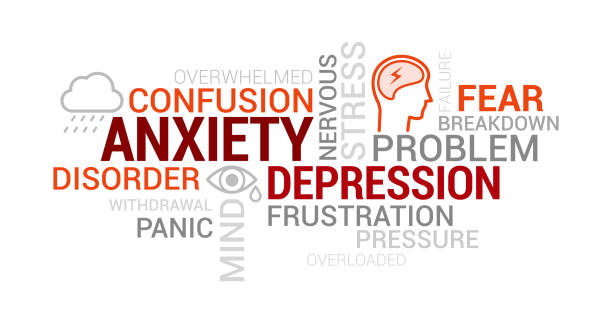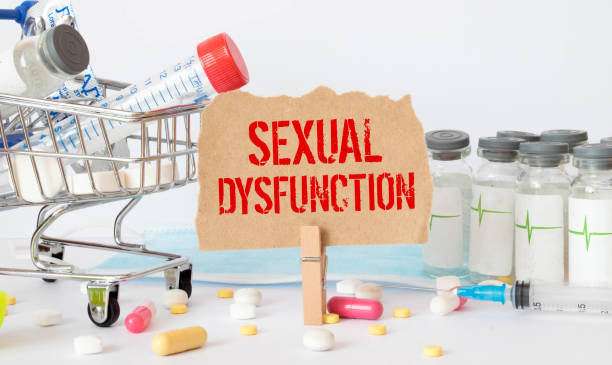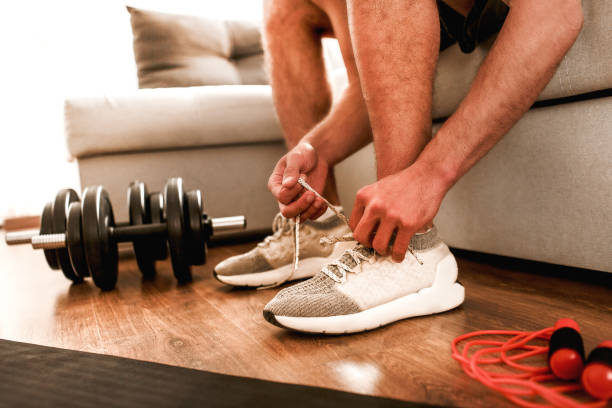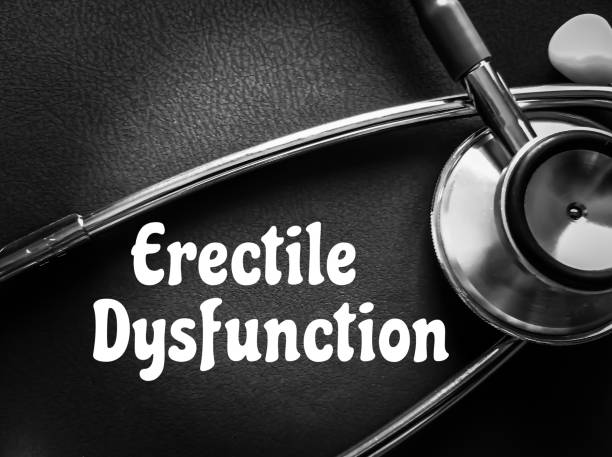Erectile dysfunction (ED) is a common condition that affects many men at different stages of life. While physical health factors such as heart disease, diabetes, and high blood pressure can contribute to ED, mental health issues like stress, anxiety, and depression also play a significant role. When the mind is overwhelmed, it can impact blood flow and hormone levels, making it harder to achieve or maintain an erection.
Understanding the strong connection between mental and physical health is essential for finding effective treatments, whether through lifestyle changes, therapy, or medical interventions.
The Connection Between Mental Health and Erectile Dysfunction (ED)
Your brain plays a crucial role in initiating the physical processes that lead to an erection. When stress, anxiety, or depression disrupt normal brain function, it can prevent the necessary signals from reaching your body, making it difficult to achieve or maintain an erection. Understanding how mental health impacts ED is key to finding effective solutions.
Anxiety and Erectile Dysfunction
Anxiety triggers the body’s stress response, releasing hormones like cortisol and adrenaline. These hormones can constrict blood vessels, reducing blood flow to the penis and making it harder to get an erection. Performance anxiety, in particular, can create a negative cycle—worrying about ED can make the problem worse, leading to more stress and further difficulties in the bedroom. Managing anxiety through relaxation techniques, therapy, or lifestyle changes can help break this cycle.
Depression and Erectile Dysfunction
Depression often reduces interest in activities that once brought joy, including sex. It can also lower testosterone levels, which are essential for a healthy libido and erectile function. Many men with depression experience fatigue, low self-esteem, and decreased confidence, all of which can contribute to ED. Additionally, some antidepressant medications may have sexual side effects. Addressing depression through therapy, medication adjustments, and lifestyle changes can help improve both mental well-being and sexual health.
By recognizing the strong link between mental health and ED, men can take proactive steps to improve their overall well-being and regain confidence in their sexual performance.

Other Factors That Contribute to Erectile Dysfunction
While mental health plays a significant role in erectile dysfunction (ED), several other factors can make the condition worse. Addressing these underlying issues can help improve sexual performance and overall well-being.
Medications and ED
Certain prescription medications, including some antidepressants, anti-anxiety drugs, and blood pressure medications, may list ED as a side effect. These medications can interfere with nerve signals, hormone levels, or blood flow, making it harder to achieve or maintain an erection. If you suspect your medication is affecting your sexual health, consult your doctor about possible alternatives or adjustments.
Lifestyle Habits and ED
Unhealthy lifestyle choices can significantly impact erectile function. Smoking damages blood vessels, reducing circulation to the penis. Excessive alcohol consumption can lower testosterone levels and impair nerve function. A sedentary lifestyle and poor diet contribute to obesity, diabetes, and heart disease, all of which increase the risk of ED. Making healthier choices, such as exercising regularly, eating a balanced diet, and quitting smoking, can improve both physical and sexual health.
Chronic Stress and ED
Ongoing stress from work, relationships, or financial struggles can take a toll on your body. Stress triggers the release of cortisol and adrenaline, hormones that can restrict blood flow and make it difficult to maintain an erection. Additionally, stress can lead to sleep disturbances, fatigue, and a reduced sex drive. Managing stress through relaxation techniques, mindfulness, or professional counseling can help improve both mental and sexual health.
By addressing these contributing factors, men can take proactive steps toward improving erectile function and overall well-being.

How to Manage Erectile Dysfunction (ED) Related to Mental Health
If anxiety or depression is contributing to erectile dysfunction (ED), there are effective ways to manage both your mental well-being and sexual health. Addressing the root causes can help restore confidence and improve performance.
Seek Professional Help
Therapy or counseling can be highly effective in managing stress, anxiety, and depression. Cognitive-behavioral therapy (CBT) and talk therapy can help you identify negative thought patterns, build coping strategies, and improve emotional well-being, all of which can positively impact sexual function.
Consider Medication Adjustments
If you are taking antidepressants or anti-anxiety medication and experiencing ED as a side effect, talk to your doctor. Some medications have fewer sexual side effects, and your healthcare provider may recommend alternatives or dosage adjustments to minimize their impact on erectile function.
Practice Relaxation Techniques
Stress management techniques like deep breathing exercises, meditation, and mindfulness can help lower stress hormones that interfere with erections. Engaging in activities that promote relaxation, such as yoga or progressive muscle relaxation, can also enhance mental clarity and improve overall well-being.
Exercise Regularly

Regular physical activity releases endorphins, improves circulation, and boosts testosterone levels—all of which are essential for sexual health. Cardiovascular exercises like walking, running, and swimming can enhance blood flow, while strength training can support hormonal balance and overall fitness.
Communicate with Your Partner
Open and honest conversations with your partner about ED can reduce stress, ease performance anxiety, and strengthen emotional intimacy. Working together to find solutions can help build a stronger, more supportive relationship, improving both mental health and sexual satisfaction.
By taking proactive steps to manage anxiety, depression, and stress, men can improve their mental health and reduce the impact of ED, leading to a healthier and more fulfilling sex life.
Conclusion: Taking Control of Your Mental Health and ED
Anxiety and depression can have a significant impact on erectile function, making it difficult to achieve or maintain an erection. However, the good news is that ED caused by mental health issues is often manageable with the right approach.
By addressing stress through relaxation techniques, making positive lifestyle changes such as regular exercise and a balanced diet, and seeking professional support through therapy or medical guidance, many men can improve their symptoms. Open communication with a partner can also help reduce performance anxiety and strengthen intimacy.
Taking proactive steps toward better mental and physical health can restore confidence and enhance overall well-being. If ED persists, consulting a healthcare provider can help identify the best treatment options tailored to your needs.

